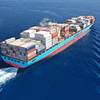A dispute over the use of nonunion labor and wages that has shut down nearly all shipments through Canada's West Coast ports entered its fourth day last Wednesday, with no sign of a resolution in sight. Most shippers have switched to ports in the U.S. since the lockout of longshore workers began on Sunday. But there was concern over added costs and possible congestion problems at alternative facilities.
No negotiations are planned between the British Columbia Maritime Employers Association (BCMEA) and the International Longshore & Warehouse Union of Canada, and both sides have rejected calls for the federal government to intervene. "There is no need for Ottawa to become involved," union President Tom Defresne said.
Vancouver is Canada's busiest port and the lockout has disrupted nearly C$90 million a day in shipments of cargo containers, potash, sulfur, containerized grain, timber, pulp, petrochemicals, oil and general cargo.
Bulk grain shipments have continued uninterrupted.
Although the two sides have not agreed on wages, the biggest issue dividing the employers and the union representing more than 2,000 employees is the use of six nonunion workers who monitor the loading of sulfur on to ships for Sultran Ltd.
The employers accuse the union of blocking a settlement by demanding that a new collective agreement for the West Coast ports include a provision to prohibit Sultran from contracting its testing work to a nonunion firm.
"(The union) wants us to participate in coercion on a matter outside the scope of the collective agreement, and we won't do it," said BCMEA, which represents more than 70 employers, in .
"They've got to remove that precondition for us to go ahead. We can't see a way out of it," association spokeswoman Asa Zannatta said last Wednesday. Union officials did not return phone calls.
Officials at U.S. ports reported no trouble handling the increased business, but several companies that normally ship via Canada expressed concerned about congestion on rail and truck lines to alternative ports.
"In effect you're fighting over the residual capacity," said an official of a paper company.
The Royal Canadian Mounted Police reported long delays at the primary border crossings for trucks at the U.S. border near Vancouver because of increased traffic.
Canadian National and Canadian Pacific railways have diverted trains to the U.S. "Most of the traffic, with the exceptions like sulfur, is finding another route to market," said CN spokesman Graham Dallas.
The weak Canadian dollar also makes it more expensive for Canadian companies to ship via U.S. ports.
"A lot of these products don't have a lot of (price) flex, so they can't absorb it," said Linda Morris of the Vancouver Port Authority. The federal government has assigned mediators to meet the employers and union, but resisted calls to order an end to the dispute. Parliament is not sitting this week and the prime minister is out of the country. -- (Allan Dowd, Reuters)
Sponsored Content
LR - Fit for 55: Managing compliance and optimising operations

Use Roxtec seals, services and software

Subscribe for
Maritime Reporter E-News
Maritime Reporter E-News is the maritime industry's largest circulation and most authoritative ENews Service, delivered to your Email five times per week









